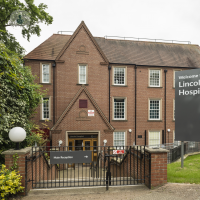What is a hip fracture?
A hip fracture is a break in the femoral bone. Most hip fractures occur at one of the two areas of the femoral bone:
- Femoral neck: located at the top of the femur.
- Intertrochanteric region : located a little lower than the actual hip joint, in the area of the upper femur that projects outward.
- There is also a third type of hip fracture, called an atypical fracture. This type of hip fracture occurs in people who have been treated over a long period with drugs that increase bone density (bisphosphonates).

Prognosis
A hip fracture is a serious injury with potentially life-threatening complications. The risk of hip fracture increases with age. In fact, it is one of the most common bone injuries among people aged 65 and older.
In addition, people who have had a hip fracture are at increased risk for weakened bones and further falls, which means a higher risk of suffering another hip fracture.
What are the signs of a hip fracture?
In general, the symptoms of a hip fracture are:
- Severe pain in the hip or pelvic area
- Bruising and/or swelling in the hip area
- Inability to bear weight on the hip
- Difficulty walking
- The affected leg may look shorter than the other leg and may be turned outwards.
How are hip fractures diagnosed?
If you have a fall and are unable to get up or stand, your doctor may take a hip x-ray to determine whether you have a hip fracture.
If the x-ray does not show a fracture, but you still have hip pain, the doctor may request an MRI or bone scan to look for a minor injury.
What are the causes of a hip fracture?
Most hip fractures in people with normal bone density are the result of a severe impact, such as in a traffic accident. However, for the elderly and people with osteoporosis, the risk of suffering this type of fracture is high due to the fragility of their bones. In these cases, a minor trauma or fall may be enough to cause the injury.
Can hip fractures be prevented?
In general, the prevention of hip fractures is based on avoiding knocks and falls and maintaining maximum bone strength. The following are some preventive measures:
- Engage in moderate physical activity on a regular basis
- Avoid tobacco and alcohol
- Eat foods that are rich in calcium and vitamin D
- Increase safety in the home by removing any obstacles or objects that could cause a fall (carpets, cables, slippery floors, dark areas)
- Take care when engaging in sports or physical activities
How are hip fractures treated?
Treatment usually involves surgery, using different types of techniques depending on the location and severity of the fracture, whether the broken bones are not aligned correctly (displaced fracture), the person’s age, and undiagnosed diseases.
- Internal repair with screws: metal screws are inserted into the bone to hold it together while the fracture heals.
- Special bone pins
- Hip replacement (total or partial)
Hip fracture
Mr Majeed Shakokani - Orthopaedic surgery
Created on: 11-13-2012
Updated on: 10-18-2023
Edited by: Sophie Kennedy
What is a hip fracture?
A hip fracture is a break in the femoral bone. Most hip fractures occur at one of the two areas of the femoral bone:
- Femoral neck: located at the top of the femur.
- Intertrochanteric region : located a little lower than the actual hip joint, in the area of the upper femur that projects outward.
- There is also a third type of hip fracture, called an atypical fracture. This type of hip fracture occurs in people who have been treated over a long period with drugs that increase bone density (bisphosphonates).

Prognosis
A hip fracture is a serious injury with potentially life-threatening complications. The risk of hip fracture increases with age. In fact, it is one of the most common bone injuries among people aged 65 and older.
In addition, people who have had a hip fracture are at increased risk for weakened bones and further falls, which means a higher risk of suffering another hip fracture.
What are the signs of a hip fracture?
In general, the symptoms of a hip fracture are:
- Severe pain in the hip or pelvic area
- Bruising and/or swelling in the hip area
- Inability to bear weight on the hip
- Difficulty walking
- The affected leg may look shorter than the other leg and may be turned outwards.
How are hip fractures diagnosed?
If you have a fall and are unable to get up or stand, your doctor may take a hip x-ray to determine whether you have a hip fracture.
If the x-ray does not show a fracture, but you still have hip pain, the doctor may request an MRI or bone scan to look for a minor injury.
What are the causes of a hip fracture?
Most hip fractures in people with normal bone density are the result of a severe impact, such as in a traffic accident. However, for the elderly and people with osteoporosis, the risk of suffering this type of fracture is high due to the fragility of their bones. In these cases, a minor trauma or fall may be enough to cause the injury.
Can hip fractures be prevented?
In general, the prevention of hip fractures is based on avoiding knocks and falls and maintaining maximum bone strength. The following are some preventive measures:
- Engage in moderate physical activity on a regular basis
- Avoid tobacco and alcohol
- Eat foods that are rich in calcium and vitamin D
- Increase safety in the home by removing any obstacles or objects that could cause a fall (carpets, cables, slippery floors, dark areas)
- Take care when engaging in sports or physical activities
How are hip fractures treated?
Treatment usually involves surgery, using different types of techniques depending on the location and severity of the fracture, whether the broken bones are not aligned correctly (displaced fracture), the person’s age, and undiagnosed diseases.
- Internal repair with screws: metal screws are inserted into the bone to hold it together while the fracture heals.
- Special bone pins
- Hip replacement (total or partial)


Running: how to prevent hip stress fracture
By Mr Rishi Chana
2024-12-27
If you train your body pretty hard and have developed hip or groin pain that hurts when lying down, you may have a hip stress fracture. Thankfully, orthopaedic surgeon Mr Rishi Chana is on hand to explain the treatment required and how it can be prevented in the future. See more


The ultimate guide to hip pain
By Professor Ali Ghoz
2024-12-27
Consultant trauma and orthopaedic surgeon Professor Ali Ghoz offers us his ultimate guide to managing and treating hip pain both at home and with the help of a doctor. Read on to find out more. See more


Preventing snow sports injuries: 9 tips from an orthopaedic surgeon
By Mr Sudhir Rao
2024-12-26
Mr Sudhir Rao, an orthopaedic surgeon, provides you with his professional advice for minimising your risk of injury while enjoying snow sports. By being mindful of certain factors and taking a few actions, you can lessen the risk of needing a visit to an orthopaedic surgeon. See more


Hip fractures: what can be done?
By Mr Alex Chipperfield
2024-12-24
You may not often consider the importance of the hip. This joint supports our weight as we move, allowing us to walk or run. Hip fractures are not uncommon, nor should they be sniffed at. They can be very serious injuries with a lengthy recovery process. What can be done about them? Leading orthopaedic surgeon Mr Alex Chipperfield is here to explain. See more
Experts in Hip fracture
-
Professor Justin Cobb
Orthopaedic surgeryExpert in:
- Knee surgery
- Hip arthroscopy
- Hip replacement
- Hip fracture
- Knee replacement
- Knee arthroscopy
-
Mr Rizwan Shahid
Orthopaedic surgeryExpert in:
- Hip replacement
- Knee arthroscopy
- Knee replacement
- Knee surgery
- Hip fracture
- Osteoarthritis
-
Mr Angus Lewis
Orthopaedic surgeryExpert in:
- Hip replacement
- Hip pain
- Hip arthroscopy
- Revision hip replacement
- Arthritis
- Hip fracture
-
Mr Hugh Apthorp
Orthopaedic surgeryExpert in:
- Hip replacement
- Anterior hip replacement
- Minimal access surgery (keyhole surgery)
- Hip resurfacing
- Hip fracture
- Hip pain
-
Mr Andrew Gray
Orthopaedic surgeryExpert in:
- Knee arthroscopy
- Knee replacement
- Knee arthritis
- Meniscus
- Hip fracture
- Traumatic injury
- See all

The Princess Grace Hospital - part of HCA Healthcare
The Princess Grace Hospital - part of HCA Healthcare
The Princess Grace Hospital, 42-52 Nottingham Pl, W1U 5NY
No existe teléfono en el centro.
By using the telephone number provided by TOP DOCTORS, you automatically agree to let us use your phone number for statistical and commercial purposes. For further information, read our Privacy Policy
Top Doctors

The Lincoln Hospital - part of Circle Health Group
The Lincoln Hospital - part of Circle Health Group
Nettleham Road, Lincoln, Lincolnshire, LN2 1QU
No existe teléfono en el centro.
By using the telephone number provided by TOP DOCTORS, you automatically agree to let us use your phone number for statistical and commercial purposes. For further information, read our Privacy Policy
Top Doctors

Cleveland Clinic London Hospital
Cleveland Clinic London Hospital
33 Grosvenor Place
No existe teléfono en el centro.
By using the telephone number provided by TOP DOCTORS, you automatically agree to let us use your phone number for statistical and commercial purposes. For further information, read our Privacy Policy
Top Doctors
-
The Princess Grace Hospital - part of HCA Healthcare
The Princess Grace Hospital, 42-52 Nottingham Pl, W1U 5NY, Central LondonExpert in:
- Cancer
- General Surgery
- Orthopaedic surgery
- Robotic Surgery
- Intensive care
- Sports Medicine
-
The Lincoln Hospital - part of Circle Health Group
Nettleham Road, Lincoln, Lincolnshire, LN2 1QU , LincolnExpert in:
- Abdominal ultrasound
- Abdominoplasty
- Radiofrequency ablation (RFA)
- Acne
- Vascular Surgery
- Thread veins
-
Cleveland Clinic London Hospital
33 Grosvenor Place, Central LondonExpert in:
- Cardiology
- Colorectal surgery
- Minimal access surgery (keyhole surgery)
- Gallbladder surgery
- Diagnostic Imaging
- Ultrasound
- See all
- Most viewed diseases, medical tests, and treatments
- Ulnar nerve entrapment
- Peripheral nerve block
- Peripheral neuropathy
- Paediatric rheumatology
- Autoimmune diseases
- Joint pain
- Lumbar herniated disc
- Abdominal pain
- Spinal surgery
- Minimal access surgery (keyhole surgery)








